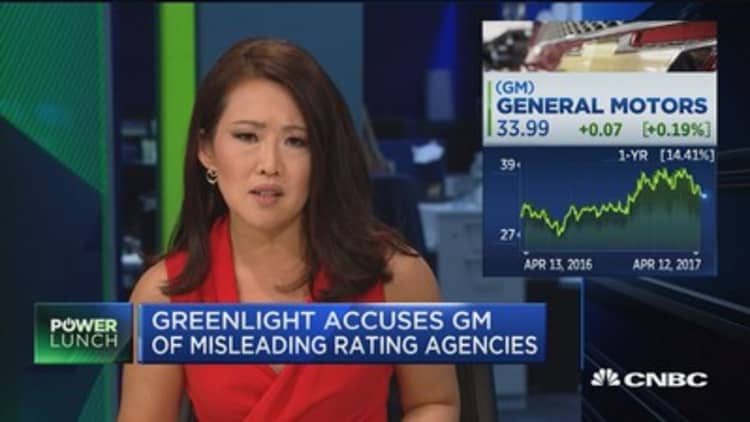
David Einhorn's Greenlight Capital has accused General Motors of misleading rating agencies about its plan to split the company's stock into two classes.
In a release Wednesday, the hedge fund announced it has filed a preliminary proxy with the SEC to nominate three "independent candidates" for election to GM's board of directors.
Einhorn, president of Greenlight, said the nominations are to ensure the automaker's board "objectively considers" the hedge fund's plan and to look after the best interest of shareholders.
GM and credit rating agencies had rejected the proposal.
"It is clear that the rating agencies relied upon — and were misled by — the company. We believe that implementing our plan would, in fact, improve GM's access to capital and enhance the company's financial flexibility," Vinit Sethi, partner and director of research at Greenlight, said in a statement.
Greenlight said it has nominated Sethi, Leo Hindery Jr., former CEO of Tele-Communications, and William N. Thorndike Jr., a founder and managing director of Housatonic Partners.
In response to the release, GM said Wednesday that the company's evaluation of the proposal remains unchanged.
"The rating agencies' public statements issued regarding the Greenlight proposal clearly indicate that they understood the idea in all its facets, and would represent a credit negative if implemented," GM said.
Late last month, Greenlight urged GM to split its common stock into two classes. The hedge fund said it would better serve investors and would "unlock substantial value."
"I would compare it to an ice cream stand that just serves chocolate and vanilla swirl ice cream," Einhorn said on CNBC's "Halftime Report" last month. "If you gave investors more choice, some people like chocolate. Some like vanilla. Some like swirl."
The automaker rejected the proposal from Greenlight, saying the plan creates "unacceptable risks" and could result in the potential loss of GM's investment-grade credit rating. GM said it would also not help the company sell more cars or improve profits.
"As Greenlight has already acknowledged, the proposed dual-class common stock structure would have no positive effect on GM's underlying business or cash flows, and therefore would not create additional intrinsic value," GM said.


